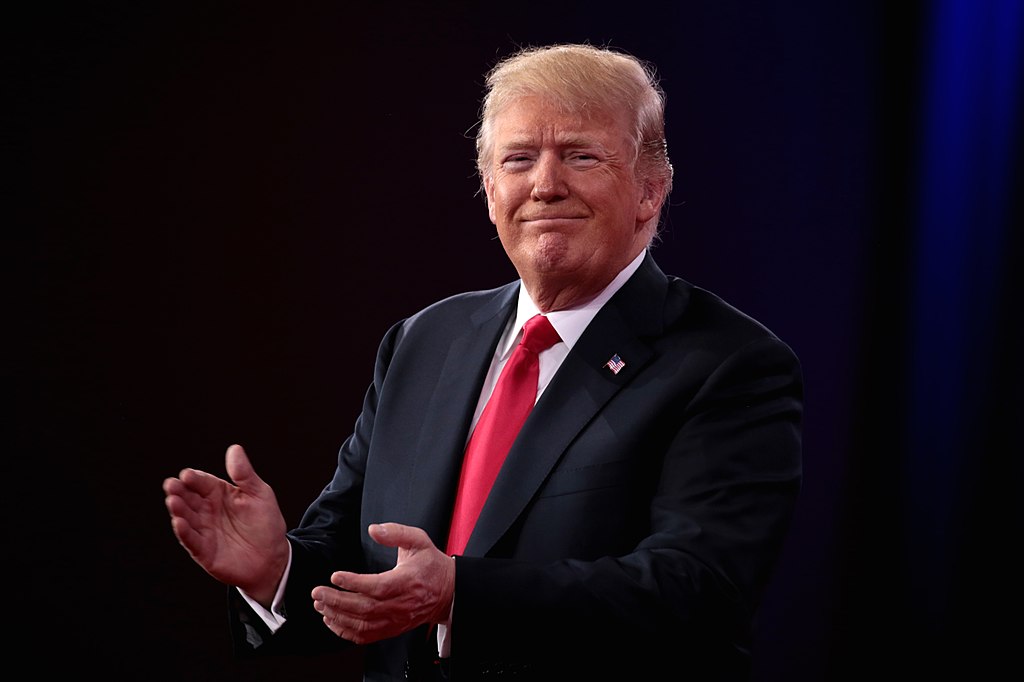President-elect Donald Trump has announced plans to establish an official U.S. government policy recognizing only two genders: male and female. This initiative is part of a broader agenda to reverse policies supporting transgender rights and to enforce traditional gender definitions nationwide.
Proposed Legislative Measures
Trump intends to ask Congress to pass legislation that legally defines gender as strictly male or female, assigned at birth. This move aims to eliminate recognition of non-binary and transgender identities within federal policies. Additionally, Trump plans to revoke existing policies that support gender transition programs and treatments across the United States.
Impact on Transgender Rights
The proposed policy would significantly impact transgender individuals by denying federal recognition of their gender identities. This could lead to the rollback of protections in areas such as healthcare, education, and employment. Advocacy groups express concern that such measures may increase discrimination and marginalization of transgender and non-binary people.
Public Reaction and Social Media Discourse
The announcement has sparked a wide range of reactions on social media platforms. Twitter user @EqualityForAll expressed concern, stating, "Denying the existence of non-binary and transgender identities is a step backward for human rights." In contrast, @TraditionalValues supported the initiative, tweeting, "It's about time we return to recognizing biological facts in our policies."
Another user, @TransRightsMatter, noted, "This policy could lead to increased discrimination against transgender individuals in various aspects of life." Conversely, @ProtectOurChildren argued, "Protecting children from confusing gender ideologies is a necessary step."
Additionally, @HumanRightsWatch emphasized the importance of acceptance: "Transgender individuals deserve recognition and protection under the law." Meanwhile, @ConservativeVoiceUSA commented, "This is a necessary move to uphold traditional values in our society."
As Trump prepares to assume office, his commitment to establishing a binary gender policy underscores a broader agenda to restrict transgender rights in the United States. The proposed legislative measures are likely to face legal challenges and have ignited a national debate on the ethics and legality of defining gender strictly as male or female. The outcome of this initiative will have profound implications for transgender individuals, policymakers, and the ongoing discourse surrounding LGBTQ+ rights in the country.



 Federal Judge Restores Funding for Gateway Rail Tunnel Project
Federal Judge Restores Funding for Gateway Rail Tunnel Project  Norway Opens Corruption Probe Into Former PM and Nobel Committee Chair Thorbjoern Jagland Over Epstein Links
Norway Opens Corruption Probe Into Former PM and Nobel Committee Chair Thorbjoern Jagland Over Epstein Links  U.S. Lawmakers to Review Unredacted Jeffrey Epstein DOJ Files Starting Monday
U.S. Lawmakers to Review Unredacted Jeffrey Epstein DOJ Files Starting Monday  Trump Backs Nexstar–Tegna Merger Amid Shifting U.S. Media Landscape
Trump Backs Nexstar–Tegna Merger Amid Shifting U.S. Media Landscape  Trump’s Inflation Claims Clash With Voters’ Cost-of-Living Reality
Trump’s Inflation Claims Clash With Voters’ Cost-of-Living Reality  TrumpRx.gov Highlights GLP-1 Drug Discounts but Offers Limited Savings for Most Americans
TrumpRx.gov Highlights GLP-1 Drug Discounts but Offers Limited Savings for Most Americans  Trump Says “Very Good Talks” Underway on Russia-Ukraine War as Peace Efforts Continue
Trump Says “Very Good Talks” Underway on Russia-Ukraine War as Peace Efforts Continue  Jack Lang Resigns as Head of Arab World Institute Amid Epstein Controversy
Jack Lang Resigns as Head of Arab World Institute Amid Epstein Controversy  South Korea Assures U.S. on Trade Deal Commitments Amid Tariff Concerns
South Korea Assures U.S. on Trade Deal Commitments Amid Tariff Concerns  US Pushes Ukraine-Russia Peace Talks Before Summer Amid Escalating Attacks
US Pushes Ukraine-Russia Peace Talks Before Summer Amid Escalating Attacks  U.S. Announces Additional $6 Million in Humanitarian Aid to Cuba Amid Oil Sanctions and Fuel Shortages
U.S. Announces Additional $6 Million in Humanitarian Aid to Cuba Amid Oil Sanctions and Fuel Shortages  Pentagon Ends Military Education Programs With Harvard University
Pentagon Ends Military Education Programs With Harvard University  China Warns US Arms Sales to Taiwan Could Disrupt Trump’s Planned Visit
China Warns US Arms Sales to Taiwan Could Disrupt Trump’s Planned Visit  Ohio Man Indicted for Alleged Threat Against Vice President JD Vance, Faces Additional Federal Charges
Ohio Man Indicted for Alleged Threat Against Vice President JD Vance, Faces Additional Federal Charges  Trump Endorses Japan’s Sanae Takaichi Ahead of Crucial Election Amid Market and China Tensions
Trump Endorses Japan’s Sanae Takaichi Ahead of Crucial Election Amid Market and China Tensions  India–U.S. Interim Trade Pact Cuts Auto Tariffs but Leaves Tesla Out
India–U.S. Interim Trade Pact Cuts Auto Tariffs but Leaves Tesla Out  Nighttime Shelling Causes Serious Damage in Russia’s Belgorod Region Near Ukraine Border
Nighttime Shelling Causes Serious Damage in Russia’s Belgorod Region Near Ukraine Border 































